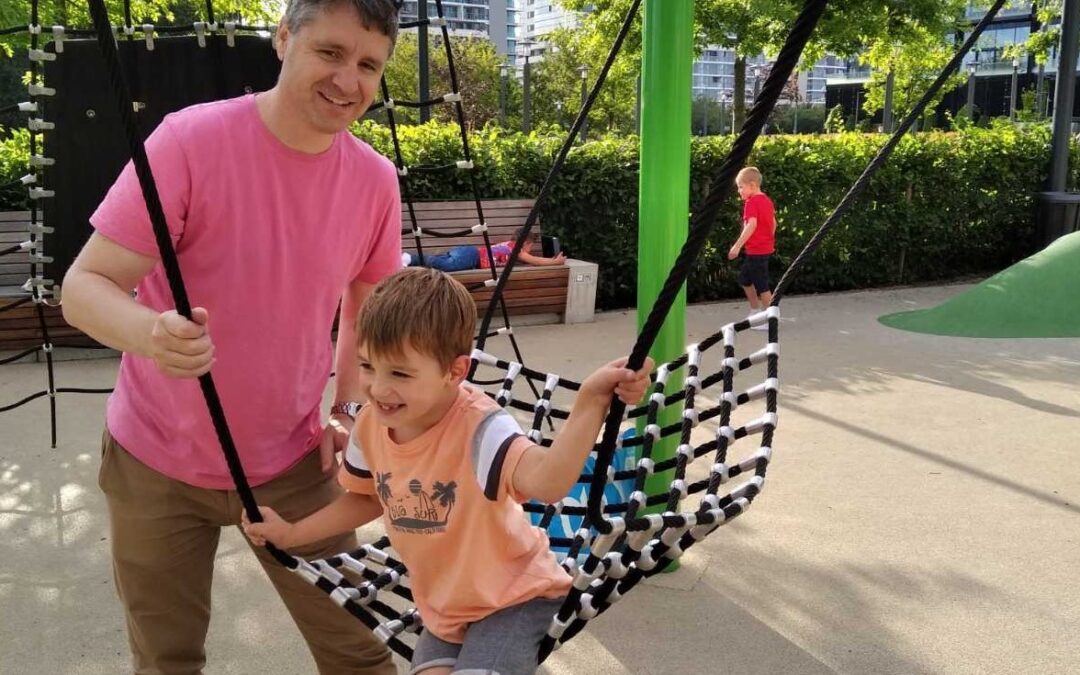A Polish court has refused to extradite a couple to the Netherlands, where they are wanted on a European Arrest Warrant for abducting their autistic son from a care facility. In his ruling, the judge declared the Dutch authorities to have violated the parents’ rights in an “inhuman and barbaric” manner.
The decision not to extradite the family was made at the request of Polish prosecutors. A deputy justice minister has hailed it as a success, and said that it demonstrates that Dutch courts are “politicised and not independent”.
The case concerns Conrad and Katya den Hertog, an Australian-Russian couple who fled to Poland and went into hiding in June this year. Their son, Martin, had previously been placed in care over concerns that he was being mistreated.
The parents, however, argue that his severe autism had simply been misinterpreted as a sign of abuse. Believing that the child was suffering from being separated from them, and claiming that he had told them he wished to “escape”, they took Martin without notifying the authorities and sought asylum in Poland.
Once in Poland, they received legal representation from Ordo Iuris, an ultraconservative legal body that has previously supported parents seeking to evade child services in Western countries by claiming protection in Poland.
Sąd Okręgowy w Wa-wie nie wydał Holandii również Conrada den Hertoga-ojca autystycznego Martina, którego wydania domaga się Holandia.”Dziękuję polskim organom oraz PG @ZiobroPL i @mwojcik_ za rzetelne wysłuchanie naszego stanowiska. Dziękuje Sądowi za ochronę praw naszej rodziny” pic.twitter.com/unXSZBcNZQ
— Bartosz Lewandowski (@BartoszLewand20) September 21, 2020
At the end of August, the family also obtained the support of the district prosecutor’s office in Warsaw, which applied to a court to refuse the extradition. The case was personally “piloted from the start” by Zbigniew Ziobro, the prosecutor general and justice minister, says his deputy, Michał Wójcik.
Today, the district court in Warsaw approved the prosecutors’ request for the family not to be extradited. In his justification, the judge, Dariusz Łubowski, found that the European Arrest Warrant issued by the Netherlands “violates human rights and freedom”, reports Polsat News.
“Without any verifiable reasons…[the couple’s] only child was taken away from them and at the same time no charges brought against them,” noted Łubowski, adding that they were denied contact with Martin for over a year and left “at a dead end”.
“The behaviour of the Dutch authorities should be regarded as extremely inhuman and barbaric…[and] in gross violation of any internationally recognised psychological standard in such cases,” concluded the judge.
Łubowski also noted that in the Netherlands people can be legally euthanised after the age of 12, expressing concern that this could pose a threat to the boy’s life.
“We were not planning euthanasia for this boy, but were concerned about his wellbeing, his health and his development,” Martine Pilaar, a spokeswoman for the Dutch prosecution service, told Reuters. “We are going to take our time to study this ruling.”
Sąd Okręgowy w Warszawie nie wydał Ekateriny den Hertog, za którą Holandia wydała ENA. Mama autystycznego Martina jest w Polsce bezpieczna! Zdaniem Sądu: 1) Istnieją wątpliwości czy sądy holenderskie są niezawisłe i niezależne od innych władz; 2) w sprawie rażąco pogwałcono pic.twitter.com/kFaEk4XpPt
— Bartosz Lewandowski (@BartoszLewand20) September 21, 2020
Wójcik, the deputy justice minister, celebrated the ruling as the “success of Zbigniew Ziobro”. The head of the justice ministry has led the Polish government’s contested overhaul of the judiciary, which has been criticised by international bodies as undermining democracy and the rule of law.
Today’s judgement, however, shows that in fact “the justice system in the Netherlands is not independent”, claims Wójcik, quoted by Polskie Radio.
“The Dutch system is disproportionately politicised in relation to the Polish system,” Wójcik told Reuters. “In the Netherlands, politicians play a very strong role in the process of judicial appointments.”
Earlier this year, the European Commission launched its latest round of infringement proceedings against Poland, saying that its judicial policies have created “a clear risk…[of] political control over judicial decisions”.
The president of Warsaw district court was appointed by Ziobro in 2017 after the end of her predecessor’s term. At the same time, the justice minister took advantage of a new law that allowed him to dismiss three vice presidents of the court, whose terms had not expired, without providing justification.
Wójcik also called for the den Hertogs to be granted asylum in Poland. If that were to happen, they would not be the first family fleeing from social services in Western Europe to receive protection in Poland in recent years.
In 2018, the Polish government approved an asylum request from Norwegian mother Silje Garmo, who fled to Poland in May 2017 with her 16-month-old daughter Eira, after concerns that the Norwegian Barnevernet child welfare services would take her away.
In a further case last year, lawyers from Ordo Iuris intervened after a Russian father living in Sweden fled to Poland with his three daughters after they were housed with a Muslim foster family due to their mother’s mental illness. In April, a Polish court ruled they could stay with their father.
“There will be many more such situations,” Wójcik told Radio Maryja last month. “Minister Ziobro’s policy is to protect children.”
In 2017, a Norwegian woman fled with her baby to Poland, where she applied for asylum, claiming child services would take away her daughter. Poland accepted her request.@zeitonline looks in detail at the case and how it triggered a diplomatic crisis https://t.co/y3UopQHv60
— Notes from Poland 🇵🇱 (@notesfrompoland) May 16, 2019
Main image credit: BartoszLewand20/Twitter

Daniel Tilles is editor-in-chief of Notes from Poland. He has written on Polish affairs for a wide range of publications, including Foreign Policy, POLITICO Europe, EUobserver and Dziennik Gazeta Prawna.




















